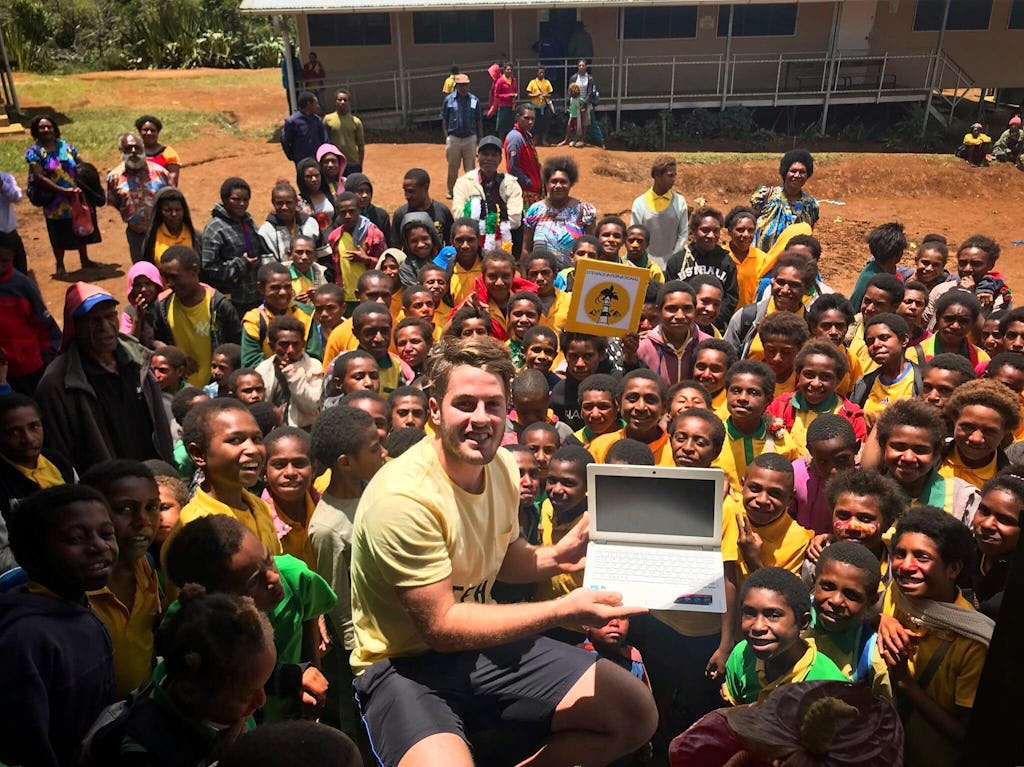New devices set to offer e-learning opportunities to some 18,000 students in Papua New Guinea for the first time.
The computers are being supplied by LiteHaus International, a Townsville-based organisation aiming to help bridge the digital divide and improve digital literacy both in Australia and amongst our pacific neighbours.
A shipment of 300 electronic devices made entirely from recycled e-waste is being shipped from Queensland to PNG to support 20 computer labs in schools in the country’s Western Highlands province.

LiteHaus International CEO and co-founder Jack Growden with students from the Western Highlands province in Papua New Guinea.
Both the social impact of creating new digital learning opportunities in remote areas and the importance of ensuring old electronics don’t end up wasted in landfill provide motivation for the organisation.
“At LiteHaus International, we are passionate about bridging the digital divide across Papua New Guinea by converting e-waste into opportunities for the future leaders of PNG,” LiteHaus International CEO and co-founder Jack Growden told Planet Ark.
“Most students living in remote villages across the country have never seen a computer before. By placing the tools to learn and the tools to dream at their fingertips, we are giving end-of-life devices a second lease on life and providing tens of thousands of students with digital learning opportunities."
LiteHaus has been supported by e-waste recyclers Substation 33, without whom the devices would never have been available in the first place. Located just south of Brisbane, the social enterprise collects and refurbishes electronic waste no longer needed by businesses, schools and families and returns them to working condition.
The 300 fully-recycled computers from donated e-waste represent Substation 33’s largest project to date. Each was built by a group of volunteers that includes some living with a disability and others who have struggled to find permanent employment.
Substation 33 are currently welcoming donations of old electronics so they can continue to create new devices for use in Australia and overseas.